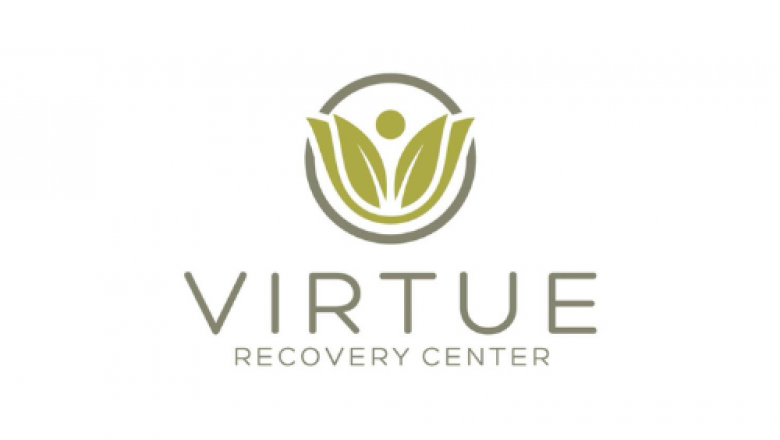views
The Role of Personalized Treatment Plans in Achieving Long-Term Recovery from Addiction
Addiction is a complex and multifaceted condition that affects individuals in unique ways. While some may struggle with substance abuse, others may face behavioral addictions, and each person’s journey to recovery is different. This is where personalized treatment plans come in. These plans are tailored to meet the specific needs of each individual, offering a more effective and holistic approach to overcoming addiction. In this article, we’ll explore the significance of personalized treatment plans in achieving long-term recovery and how they help individuals lead fulfilling, sober lives.
Understanding Personalized Treatment Plans
Personalized treatment plans are designed to provide care that addresses the unique circumstances, struggles, and needs of each individual. These plans go beyond the standard, one-size-fits-all approaches by considering various factors such as the individual’s substance of choice, physical and mental health history, family dynamics, social environment, and personal goals.
In addiction recovery, personalized treatment plans often combine a mix of therapies and interventions tailored to address the person’s specific issues. Whether it’s a dual diagnosis (mental health and addiction), trauma history, or a specific lifestyle, these plans ensure that every aspect of the person’s condition is considered, creating a more comprehensive and effective treatment approach.
Why Personalization Matters in Addiction Recovery
- Individualized Care Leads to Better Outcomes
When treatment is personalized, individuals are more likely to remain engaged and motivated throughout the recovery process. A customized plan considers the person’s strengths and weaknesses, preferences, and challenges, making it easier for them to commit to the process. People are more likely to succeed in their recovery when they feel that their treatment is relevant to their specific situation, rather than following a generic plan that may not fully address their needs.
- Addressing Underlying Issues
Addiction often co-occurs with other mental health issues, such as anxiety, depression, or trauma-related disorders. Personalized treatment plans are designed to address not only the addiction itself but also these underlying conditions. For example, an individual with PTSD might require specialized trauma therapy alongside substance abuse treatment. By addressing both the addiction and any co-occurring issues simultaneously, personalized plans help reduce the risk of relapse and promote long-term recovery.
- Increased Accountability and Support
A key element of personalized treatment plans is the support network. Individuals receive guidance from healthcare providers, therapists, and family members who understand their unique needs. This support network plays a critical role in recovery, helping individuals stay accountable, stay motivated, and feel understood. Having a personalized plan ensures that the right kind of support is available at the right times.
- Promoting Sustainable Change
Addiction recovery isn’t just about overcoming the physical dependence on a substance; it’s about making lasting changes to one’s behavior, mindset, and lifestyle. Personalized treatment plans incorporate a variety of strategies to help individuals learn healthier coping mechanisms, improve emotional regulation, and develop resilience in the face of challenges. These strategies might include:
- Cognitive Behavioral Therapy (CBT): Helps individuals identify and change negative thought patterns and behaviors associated with addiction.
- Motivational Interviewing: Encourages individuals to explore and resolve ambivalence toward recovery, empowering them to make positive changes.
- Mindfulness and Stress Management: Teaches individuals to manage stress, anxiety, and other triggers in healthy ways.
Incorporating these approaches into a personalized plan helps individuals build the necessary skills to maintain sobriety long after their treatment ends.
The Components of a Personalized Treatment Plan
- Comprehensive Assessment
The first step in creating a personalized treatment plan is a thorough assessment of the individual’s physical, emotional, and psychological health. This often involves interviews, questionnaires, and diagnostic tests to understand the person’s addiction history, mental health, social influences, and past treatment experiences. This detailed assessment ensures that the treatment plan is not only suitable but also effective for the individual’s specific needs.
- Holistic Treatment Approaches
Personalized treatment plans take a holistic approach, addressing the individual’s physical, emotional, mental, and spiritual well-being. This may include a combination of:
- Detoxification: Safe and medically supervised detox to help individuals eliminate substances from their system.
- Therapy and Counseling: Various therapeutic techniques, including individual therapy, group therapy, and family therapy, to help individuals understand their addiction and develop healthier ways of thinking and living.
- Medication: In some cases, medications may be used to help manage withdrawal symptoms or reduce cravings, particularly in cases of substance addiction.
- Aftercare Support: A critical component of long-term recovery, aftercare may include outpatient services, support groups, or sober living arrangements.
- Regular Progress Evaluations
As individuals progress in their recovery, their treatment plan should evolve with them. Regular evaluations and assessments allow healthcare providers to track progress, identify any emerging issues, and adjust the plan as necessary. This ongoing evaluation helps ensure that the treatment continues to meet the person’s needs throughout the recovery process.
The Benefits of Personalized Treatment Plans
- Higher Retention Rates: Personalization increases engagement and decreases dropout rates, as individuals feel more connected to a plan that’s specifically designed for them.
- Fewer Relapses: With individualized care, the likelihood of relapses is reduced. Personalized plans address the root causes of addiction and equip individuals with the tools they need to navigate challenges.
- Empowerment: Personalized plans allow individuals to take an active role in their recovery, making them feel empowered to make positive decisions for their health and future.
Conclusion
The journey to recovery is deeply personal, and there is no one-size-fits-all approach. Personalized treatment plans are key in providing the care and support needed to address each person’s unique needs, ultimately helping them achieve long-term recovery. By creating individualized plans that take into account various aspects of a person’s life—such as mental health, substance abuse history, and social environment—treatment can be more effective, empowering, and sustainable. Whether you're seeking help for addiction or supporting a loved one through recovery, personalized treatment is the cornerstone of a successful and fulfilling path to sobriety.






















Comments
0 comment